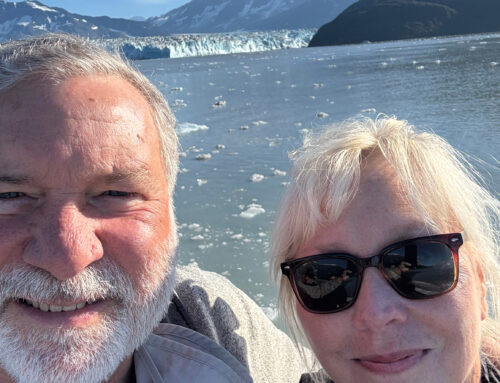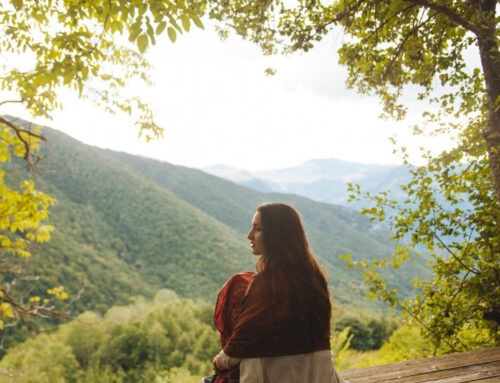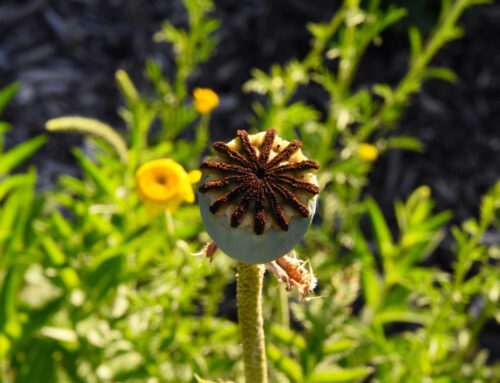 Today, as I was working outside in the garden, I was reminded again just how much gardening positively impacts my well-being. Notice I wrote the word well-being, not wellness. While you have probably heard these two terms used interchangeably, the truth is that although these two concepts have much in common, they refer to different aspects of our overall health.
Today, as I was working outside in the garden, I was reminded again just how much gardening positively impacts my well-being. Notice I wrote the word well-being, not wellness. While you have probably heard these two terms used interchangeably, the truth is that although these two concepts have much in common, they refer to different aspects of our overall health.
Wellness generally refers to our physical state of health rather than our emotional and mental health. While most providers acknowledge that an individual’s mental and emotional health affects their physical health, wellness is usually more narrowly defined and considers “good health” to be the absence of illness and/or disability.
Well-being, on the other hand, embraces far more than just physical health. It also encompasses the mental, emotional, and spiritual health status of the individual and views “health” from a more holistic perspective. Well-being not only includes the absence of illness and/or disability, but it also includes the presence of positive mental, mood, and emotional states.
Why am I writing about this? Because I am not only a gardener and nature lover, I am also a health provider, university educator, and a researcher, who recently completed a two-year research project which examined happiness, well-being, and what it means to live a wholehearted life. What were the results of the study? In summary, the findings indicate we each need to cultivate and nurture eight areas – or personal gardens – of our life to embrace joyful, wholehearted living. These are:
The Eight Gardens of a Wholehearted Life
Garden #1 – Cultivating Self-Trust, Confidence, and Authenticity
Garden #2 – Cultivating Resiliency, Grit, and Perseverance
Garden #3 – Cultivating Love and Positive Relationships
Garden #4 – Cultivating Gratitude, Kindness, Forgiveness, and Compassion
Garden #5 – Cultivating Optimism and Faith
Garden #6 – Cultivating Nature as Nurture
Garden #7 – Cultivating Rest, Play, Laughter, and Creativity
Garden #8 – Cultivating Community and Global Citizenship
So, where does this leave us with respect to wellness and wellbeing?
Traditional wellness programs most often have focused on the indicators which provide insight into our physical health (e.g., blood pressure, weight, blood glucose, lipid, and cholesterol levels, etc.). They may also have supported smoking cessation programs, nutrition and weight maintenance programs, exercise and fitness programs, and public health vaccination initiatives. Supporting the wellness of individuals in the workplace and community was thought to be a huge step in the right direction toward encouraging better population health.
Unfortunately, this has not been the case.
Nearly 15 years later, evidence-based data suggests that even though the U.S. spends over $6 billion per year on wellness programs, the prevalence of heart disease, diabetes, and obesity continue to rise. Furthermore, the incidence of opiate and other substance use disorders, depression, workplace, community, and domestic violence, and suicide rates – especially among our youth, are also ongoing issues of concern. The personal and economic costs of poor well-being cause billions of dollars of lost revenue to the world economy and immeasurable human loss and suffering.
Does this mean we should discontinue our workplace and community wellness programs?
Absolutely not.
But what the data does suggest is that we need to expand our health promotion initiatives to view “health” through a more comprehensive lens. We need to look beyond the confines of physical health, and address the mental, emotional, and spiritual needs of individuals, employees, and communities. We need to understand that as we continue to embrace technology and human development and move away from historical patterns of living, we are also creating a human: nature deficit which affects not only ourselves but society as well.
This is why I study joy and wholehearted living. I hope this and future blogs not only entertain but also contribute to the body of knowledge which helps others embrace their personal journey toward well-being and living a joyful and wholehearted life.
Gardening, wellness, and well-being – how do you try to live a wholehearted life?








